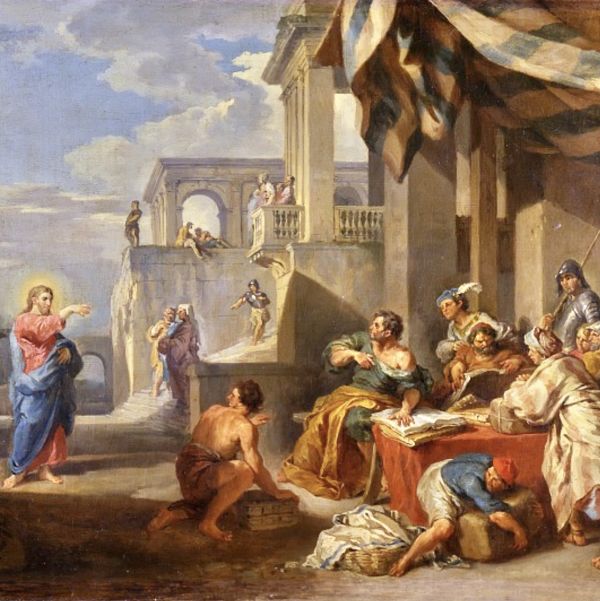Jesus makes us contemplate Matthew's strong and particular call, displacing everyone, precisely because it begins with sinners and not with the perfect according to the mentality of the time.
«For I did not come to call the righteous, but sinners» (Mt 9:13).
Francis and Clare saw in the stimuli of their vocation and the brothers and sisters who followed them a fundamental attractive appointment. An opportunity for existence in Grace, which had looked upon them and redeemed them.
Through the Call, God was realising a secret gift in them, far beyond the expectations of a small life.
Regarding Francis, we read in the Sources:
"As he was passing near the church of San Damiano, he was inspired to enter it. He went there, and began to pray fervently before the image of the Crucifix, who spoke to him with moving goodness
«Francis, do you not see that my house is falling down? Go then and restore it».
Trembling and astonished, the young man replied:
"I will do it gladly, Lord".
However, he had misunderstood; he thought it was about that church which, because of its antiquity, threatened imminent ruin.
At those words of Christ he became immensely happy and radiant; he felt in his soul that it was really the Crucified One who had given him the message.
As he came out of the church, he found a priest sitting nearby, and putting his hand in his purse, he offered him money saying:
"Sir, I beg you to buy oil to make a lamp burn before that Crucifix. When I have finished this money, I will bring you more, according to need' " (FF 1411).
During his life, the Poverello continued to consider minority as a specific vocation of the friar.
Thus, observing the behaviour of the religious, he sometimes seemed preoccupied....
At times he "saw that some were ardently desirous of the offices of the Order, of which they made themselves unworthy, apart from anything else, by the mere ambition to govern. And he said that these 'were not Friars Minor, but had forgotten their vocation and had fallen from glory'" (FF 729).
Clare, regarding the vocation of the sisters residing at San Damiano, also expressed herself in her Testament as follows:
"The Lord himself has placed us as a model, as an example and mirror not only for other men, but also for our sisters, those whom the Lord himself has called to follow our vocation, so that they too may shine as a mirror and example for all those who live in the world" (FF 2829).
Friday of the 13th wk. in O.T. (Mt 9,9-13)












